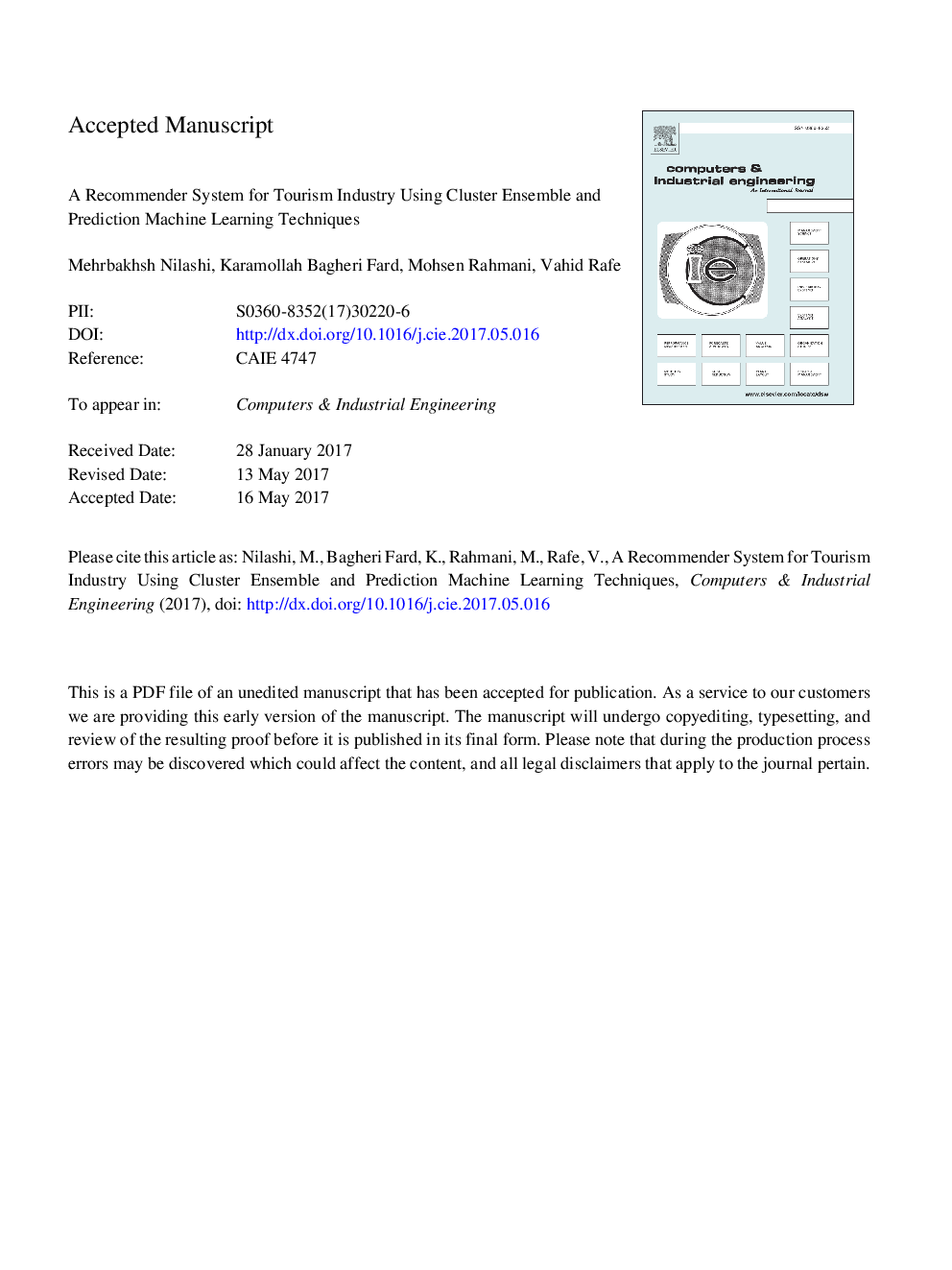ترجمه فارسی عنوان مقاله
یک سیستم پیشنهاد دهنده برای صنعت گردشگری با استفاده از گروه خوشه ای و تکنیک های پیش بینی ماشین های یادگیری
عنوان انگلیسی
A recommender system for tourism industry using cluster ensemble and prediction machine learning techniques
| کد مقاله | سال انتشار | تعداد صفحات مقاله انگلیسی |
|---|---|---|
| 160171 | 2017 | 30 صفحه PDF |
منبع

Publisher : Elsevier - Science Direct (الزویر - ساینس دایرکت)
Journal : Computers & Industrial Engineering, Volume 109, July 2017, Pages 357-368

